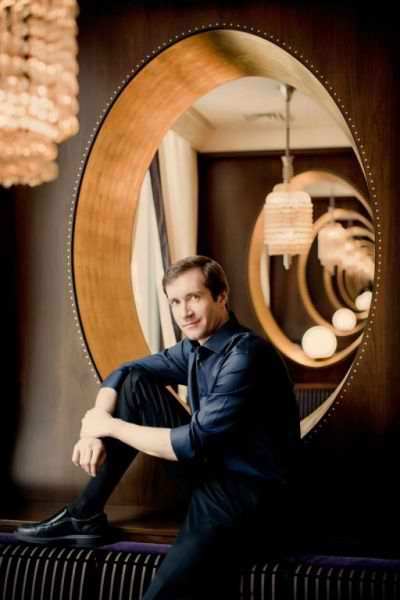|
Back
After And Before the Tempest New York
Avery Fisher Hall, Lincoln Center
11/01/2012 - & November 2, 3*, 2012
Mikhail Glinka: Ruslan and Ludmila: Overture
Sergei Rachmaninoff: Piano Concerto No. 3 in D minor, Opus 30
Sir Edward Elgar: Variations on an Original Theme (“Enigma”), Opus 36
Nikolai Lugansky (Piano)
New York Philharmonic Orchestra, Charles Dutoit (Conductor)

N. Lugansky (© Marco Borggreve)
Charles Dutoit and the New York Philharmonic didn’t know it, but they gave me a most personal gift last night.
Explanation, please. Yes, New York suffered (and is still suffering) the effects of Superstorm Sandy. My own problem was lack of electricity, landline, wireless phone, hot water and transportation system. And while it was restored on Friday evening, and I was prepared for this Saturday concert, I did not want Boulez or Schoenberg, Webern or even the originally scheduled Debussy. In other words, I wanted music that I could feel without having to use a single neuron or synapse or cell of my already addled brain.
And this was exactly the program last night. A volatile Glinka Ruslan and Ludmila Overture, a mesmeric flurry of fingers and Rachmaninoff crescendos, and finally a sensual Elgar “Enigma” Variations. All of this under the very experienced hands of Charles Dutoit, and some lovely solos from the New York Philharmonic.
In other words, within two hours, my sanity had been restored. So once again, “Merci, M. Dutoit”.
The full-house audience (compared to a reported sparse auditorium on Thursday) had one distinct favorite, young Russian pianist Nikolai Lugansky, a man who almost literally fell off his bench during the more daring measures of the Rachmaninoff. I have seen bravura pianists make a show of this stuff, but Mr. Lugansky obviously isn’t one of them. When he whirled body and fingers around, it was necessary for this extremely difficult work. But not once did he sacrifice dexterity for the sheer poetry of the Concerto.
I still can’t figure out how the composer could segue the most languid, almost flaccid themes into sections of the most serious finger-twirling, that itself turning into Late Romantic sheer passion. But Mr. Lugansky took it all in his stride. Did he start the finale movement faster than Mr. Dutoit? Or play the final cadenza with a hint of untidiness? Possibly, but this is music which needs more spontaneity than earnest perfect playing.
Actually, it goes without saying that any pianist who attempts this in public takes his musical life–literally–in his hands. Mr. Lugansky had no fear, and the result was quite electrifying. Equally electrifying was his encore, a transcription of the Midsummer Night’s Dream scherzo by...I think...Rachmaninoff. Brisk and perfect.
Mr. Dutoit had two links in this program. The first was the Russian link (a Dutoit specialty). Besides the Concerto, he had the opening Glinka Overture. And if the New York Philharmonic didn’t sound totally Slavic, he gave it a good punch–and the transparency to Glinka’s counterpoint which is rarely heard.
The second link was that, while the program came later than the New York tempest, it cane earlier than a more important storm. Both the Rachmaninoff and the Elgar were premiered in New York within a year of each other, about five years before the War to End All Wars, in 1913.
What did this mean for composers? They sill had that sense that man could be perfected, that all was right in this best of all possible worlds, that Darwinian evolution meant we would all progress.
Ergo, music without discord, music which was ravishing in itself. And that certainly included the Elgar “Enigma”. This was an homage to Elgar’s friends, as well as an homage to perhaps his little joke, that the theme related to an enigmatic other theme. That was probably a little canard.
At any rate. Mr. Dutoit, as energetic as ever, with all his beautiful movements, with some splendid solo playing (cello and clarinet especially). Had New York this week possessed one-quarter of the electricity he gave to the Elgar, we would have been more than satisfied.
Harry Rolnick
|